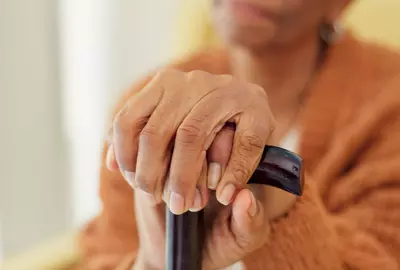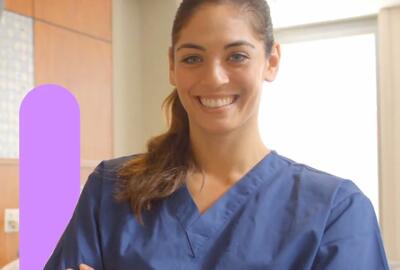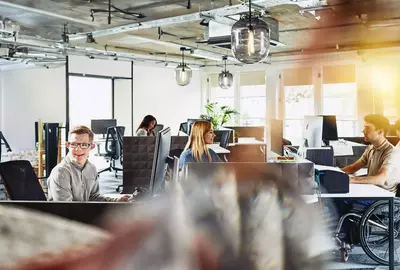When Arianna Huffington was asked, “What’s the secret to success?”, her answer was simple: Get more sleep.
The media mogul learned the hard way what doctors have been telling us for years. Nearly a decade ago, Huffington broke her cheekbone after fainting from exhaustion at her desk.
According to Randstad’s latest employer branding research, Australian workers value work-life balance over job security and career progression. A recent report by consulting firm McKinsey & Company entitled The organisational cost of insufficient sleep confirmed that a lack of sleep reduces concentration, inhibits creativity and impairs the ability to solve problems. 66% of business leaders surveyed said they were dissatisfied with how much sleep they get.
in short, employees want more sleep and employers should want to give it to them. sleep deprivation has been shown time and time again to be bad for worker productivity.

About a third of Australian full-time workers say they are extremely tired all the time. If you skimp on small amounts of sleep, it can impact your ability to self-regulate your emotions and you will be more reactive at work. If you’re a leader, that has a particularly detrimental effect on the morale of your team and your ability to communicate and influence.

O’Connor says tired employees are also more likely to engage in unethical behaviour and have trouble staying focused. But employers have been slow to take up policies that address this problem, with some stuck in a cycle of rewarding employees who get by on too little sleep.
“There are definitely work cultures where sleeplessness is seen as a sign of strength,” O’Connor says. “People know they aren’t getting enough sleep but they’re run by a work ethic that says if they’re not seen to be working long hours they must be a bit of a slacker.”
Like Huffington, O’Connor believes the secret to success is getting more sleep – something that can be achieved through the promotion of power napping in the workplace.
“There is no doubt that if you’re tired, napping will improve your afternoon efficiency,” O’Connor says. “Even if you only get 10 minutes of sleep, it will increase your alertness, put you in a better mood, improve concentration and has even been found to reduce the number of workplace accidents and errors.”
around the world, companies including Apple, Nike and HootSuite have introduced nap rooms that encourage employees to catch some Zs when their energy levels slump. It’s becoming a growing trend in Australia too.
Sheet metal manufacturer Kavanagh Industries, located in Sydney’s west, installed sleep pods two years ago. Business Development Manager Craig Brewin says that, while staff members are only allowed to sleep during allocated breaks, the move has boosted morale.“,” he says. “
Brewin says the company also offers tai chi, free massages and a sauna. And if the goal is to improve employee wellbeing and satisfaction, it seems to be working.

The sleep pods are a cone of silence where the guys can take a break. They come out more refreshed and a bit more focused. If it makes them more productive or they’re less likely to have accidents, that’s a bonus for us. But it’s more about their wellbeing. There’s nothing we wouldn’t do to keep our employees happy and safe.
“We’ve got very low absenteeism and very low staff turnover. We never have to advertise for staff,” Brewin says.
Nathan Schlokker, the owner of Brisbane-based Talio Group, says he’s seen a boost in productivity since instituting a sleep policy. He says the key challenge is overcoming a work culture that rewards being busy above all else.
“The research demonstrates that without proper rest and sleep you don’t function as well as you possibly could. I know at times when I’ve not had enough rest I’m easily irritated, I’m not as productive and I tend to procrastinate.
Schlokker says he encourages his employees to come to him if they are feeling run-down or tired. While the company no longer has designated nap rooms due to a change in the workspace, he encourages workers to take a break or leave for the day if they need to catch up on sleep.
“It’s paying dividends for us,” he says. “The guys are a lot happier and they are much more productive. They work together a lot better because they are well-rested and not agitated or annoyed. With that improved attitude, it’s definitely helped the bottom line.”
Sleeping at work may not yet be widely accepted, but there are small steps employers can take to break the taboo and foster a happier workplace.
McKinsey & Company suggests imposing email blackout times to allow employees to properly “switch off” after hours, offering financial incentives to employees who don’t check work emails or answer calls when they’re on holiday and providing workers with gadgets designed to manage and improve sleep.
“Any workplace initiative should be based on the needs and interests of staff,” O’Connor says. “Check-in. Before you do anything, ask your staff if they would welcome this.
“The single most important thing a leader can do is consistently not just give permission but actively encourage and reward. You need the boss coming up to you and saying, ‘You look tired, you need a nap’.”
to paraphrase Huffington, there’s no shame in sleeping your way to the top.



